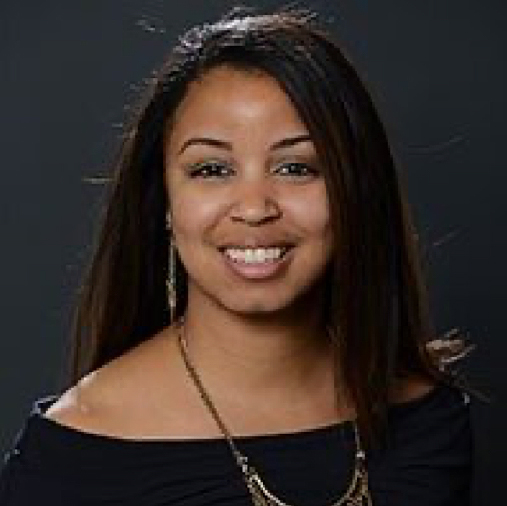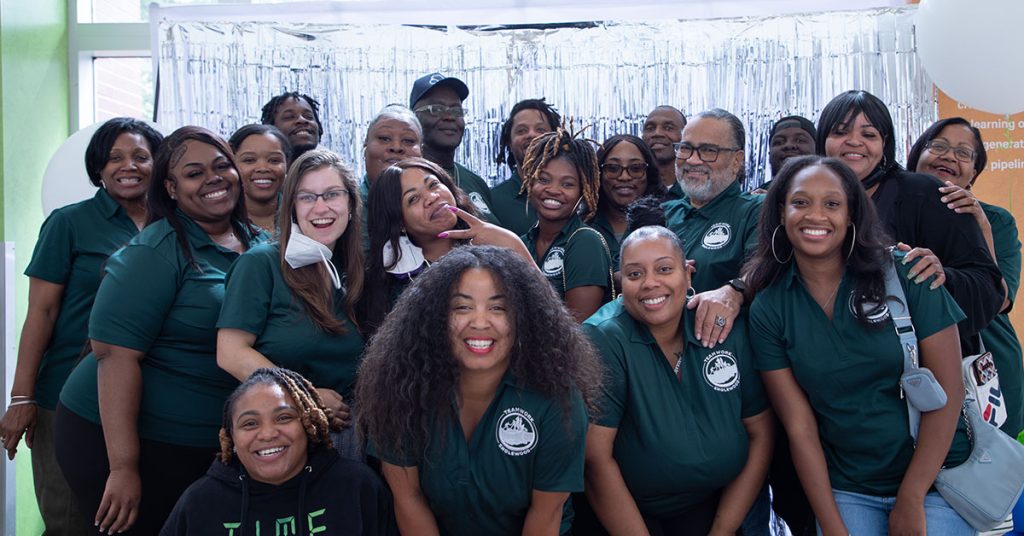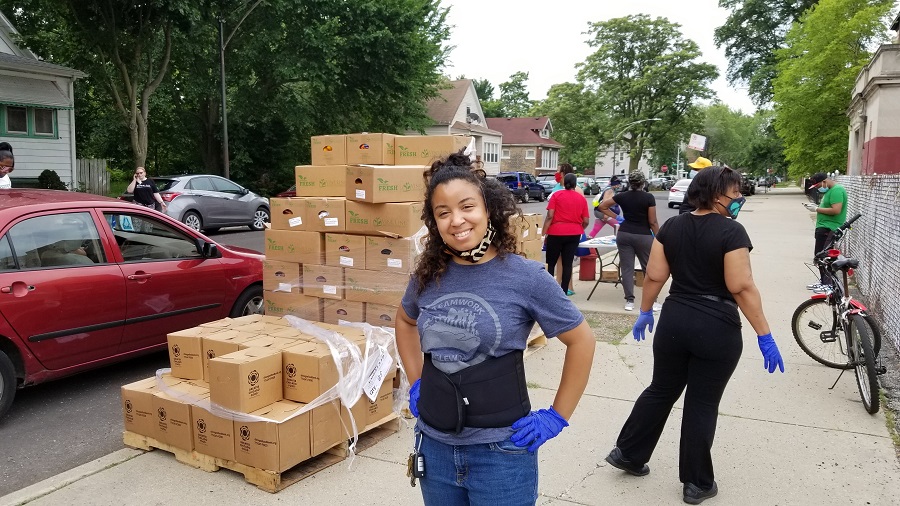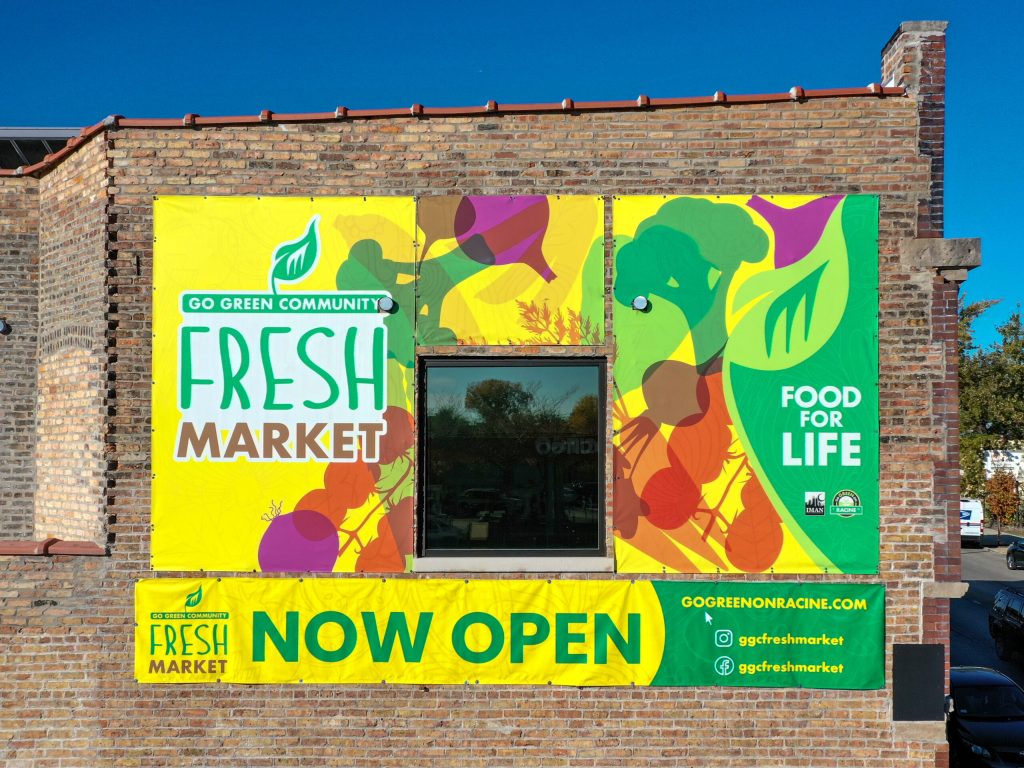Client Profile: Cecile De Mello
May 01, 2023She never stops searching for solutions to revitalize Englewood.




Cecile De Mello likes to ask questions. So much, in fact, that she once considered doing so professionally.
“When I was in high school,” she says, “I wanted to be a journalist. I was very inquisitive about the way my community was set up.” De Mello was living in Washington Park and going to school in Hyde Park. She noticed that as she traveled eastward, she entered “a completely different reality.”
She had queries. Big ones. “I was always asking, how did this happen? Why is my family struggling? I felt like journalism was a way to ask deep questions to understand what’s going on around you. I love Black people, but we were always getting the short end of the stick around economic development.”
De Mello wanted to know why. That nagging curiosity never left her. But her appetite for taking action grew. While an undergraduate at Temple University in Philadelphia, De Mello’s sorority sister asked if she wanted to participate in direct actions protesting unequal admissions. She said yes, and just like that, a fork appeared in the road. De Mello — who was studying journalism — took an alternate route.
These days, De Mello is a seasoned community organizer. She has worked on efforts around education reform, public financing, and workforce development programming. Since 2019, she has been executive director of Teamwork Englewood, a nonprofit that strives to improve Englewood residents’ quality of life by cultivating more economic and educational opportunities. Before that, she worked at Blocks Together, a community group in West Humboldt Park, for 13 years, starting as an education organizer and ascending to co-director.
“For me,” De Mello says, “organizing and community building answer the questions that journalism asks.”
“Here’s the thing about me. Everything I ask my staff to do, I have to be able to do. I’m going to go to events, I’m going to knock on doors, I’m going to sit in on peace circles to ease conflict between young people. You don’t know where Cecile’s gonna pop up. I could be at the corner of a safe passage. I like to be everywhere.”
Pouring Energy into Strengthening Communities
When De Mello left Chicago for college, she could’ve stayed away. She was fond of Philadelphia. To her, it felt like more of a melting pot, less segregated than her hometown, which was particularly appealing given De Mello’s biracial identity. (Her father is Black; her mother is Puerto Rican.)
“I grew up with both of my identities very present,” she says. “My dad taught me and my sisters Black liberation theology, and my mom was always filling the home with the smells of Puerto Rican food, mixed with a little soul food.”
Ss she seriously considered staying out East. But the pull of being near family was strong. She became a mom at 21, and her parents and siblings are very tight-knit. Home beckoned.
Still, her upbringing was far from easy. Chicago wasn’t always a soft place to land.
“We had times of housing insecurity. My dad ended up having a predatory mortgage. And at one point, we were illegally evicted out of an apartment before we bought the home. So, I know what it feels like to be in transitional living situations,” says De Mello, the first in her family to earn a four-year degree.
“My dad really tried to do entrepreneurship — that’s how he wanted to build wealth for the family. But there was not a lot of capacity at that time for Black entrepreneurs.”
At the time, it felt like bad luck. But now?
“I know that wasn’t really about luck,” she says. “It was the system working the way that the system works.”
Through community organizing, De Mello became intimately familiar with predatory banking practices, illegal evictions and other systemic inequities, as well as the historic and ongoing challenges Black and brown people face when attempting to build generational wealth.
De Mello has called Englewood home for 14 years. She lived in the South Side community before she married her husband of 11 years, before they grew their family to include three children. After spending more than a decade doing community building in West Humboldt Park, she wanted to bring what she’d learned back to her neighborhood. And she has.
In the last three and a half years, De Mello says Teamwork Englewood’s budget has nearly tripled. They’ve grown from seven full-time staff members to 18. Despite the team’s expansion, De Mello works a lot. In a typical week, she’ll do everything from budgeting to canvassing to having a cheerleading session for her staff.
“Here’s the thing about me. Everything I ask my staff to do, I have to be able to do. I’m going to go to events, I’m going to knock on doors, I’m going to sit in on peace circles to ease conflict between young people. You don’t know where Cecile’s gonna pop up. I could be at the corner of a safe passage. I like to be everywhere,” she says.
Partnering Up to Spur Change
It’s no secret that Chicagoans often see Englewood portrayed negatively in the news. Even national coverage highlights ways the community is hurting — like the striking fact that in Englewood, which is predominantly Black, the average life expectancy is about 60 years, while 9 miles north, in affluent and largely white Streeterville, it’s 90 years, according to a 2019 study.
“There are a lot of people who really move things forward in this community. Folks from the larger citywide lens don’t always see that,” she says. “You hear so much about the symptoms of disinvestment, but there’s less opportunity to shine a light on all the work that’s been happening to address that disinvestment.”
For her part, De Mello can point to a healthy list of developments in Englewood worth celebrating. Like the Go Green on Racine project, a collaborative effort fueled by several community organizations, Teamwork Englewood included, to revitalize the area’s 63rd Street and Racine corridor. Last March, the Go Green Community Fresh Market opened, a major win in an area with limited options for fresh and healthy food. Operated by the Inner-City Muslim Action Network, the market is part of the multimillion-dollar Go Green initiative.
De Mello’s also enthusiastic about plans to turn a long-closed Englewood elementary school into the Regenerator, a massive hub with housing and resources for formerly incarcerated people — also part of the Go Green strategy.
Then there’s the momentum building around reopening the 63rd and Racine Green Line train station.
There’s also a lot of work centering on providing more safe spaces for youth. One is through the anchor tenancy of the Ujima Village, a resiliency hub for families in Englewood to get support and tap into programming. The other is Teamwork Englewood’s lease agreement for the former Harper High School, where youth organizations share space for programming.
The list goes on.
Community development is a team sport. Collaboration is crucial. “We cannot do this work alone,” De Mello says. One key partner is Community Desk Chicago. Team Englewood participates in The Desk’s Neighborhood Developers Initiative, a $2.7 million investment that helps community-based organizations take on local real estate projects.
“It’s important that we have more brick-and-mortar economic development projects to point to,” she says. “Programming and human development is long-haul work, and it’s done behind closed doors. People aren’t seeing all of that work you’re doing with a young person or with a person who was unemployed. Seeing an updated field house or a corner cleaned and renovated does something for the human spirit of those who live here.”
Speaking of the long haul, De Mello’s been doing community organizing work for 20 years and has no plans to stop.
“ I have approached this work as a mother. My vision for the future is rooted in what kind of community I want my children to continue to grow up in, return from college if they leave, and start their family here in Englewood.”
There are too many questions left to answer.